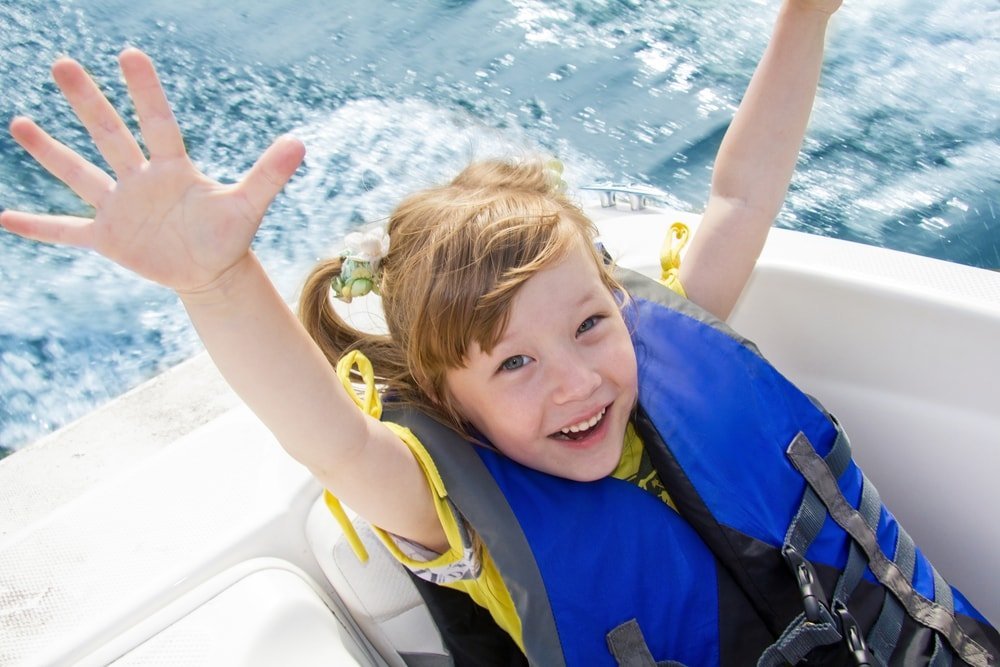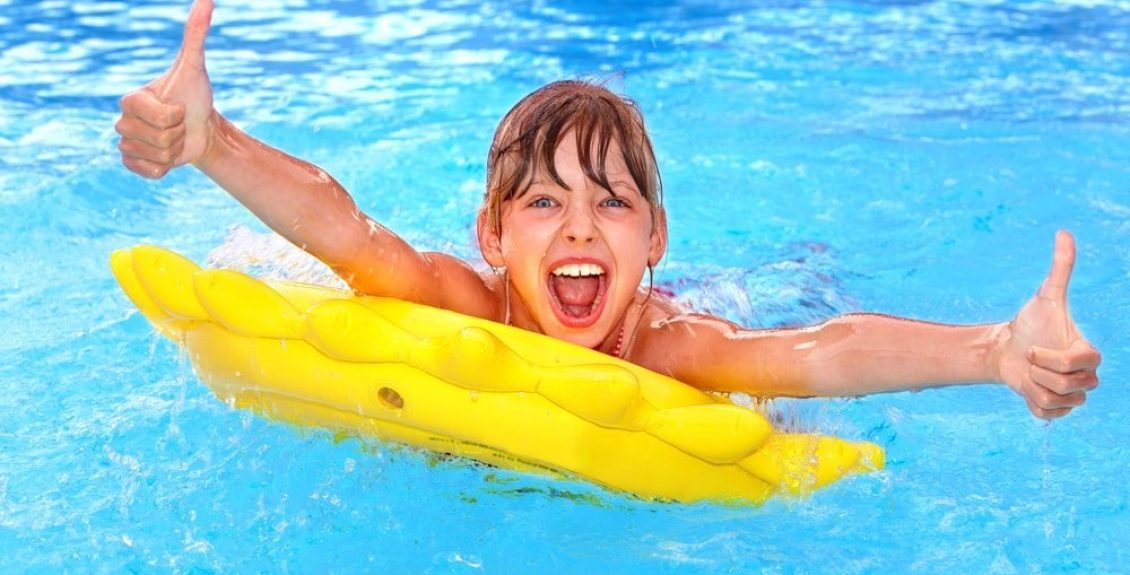Even though we’ve all been out of school for weeks now, summertime is just now getting here. We know that kids everywhere are tired of being at home and ready to get out and play. Especially when it comes to the water. What kid doesn’t love playing in a swimming pool, boating on the lake, or even just running through the sprinklers at home?
With that being said, water can be just as dangerous as it is fun. Just 4 Kids is here to help you keep your kids healthy and safe in any way we can. We also want to make sure that you have peace of mind as a parent. So here are some water safety tips to help keep your kids safe in the water this summer.
For Babies
As a parent of a newborn, nothing is more important than protecting that new baby — including from water hazards around your home. When it comes to the water, something can go wrong in the blink of an eye. And it can happen to anyone. You should never leave a baby (or other young child) without proper supervision near a pool, bathtub, irrigation ditch, or any other form of standing water. There should be an adult close by any young child near the water at all times.
For Toddlers
Toddlers, maybe more than any other age of child, need constant supervision and protection. They are full of curiosity and just big enough to begin exploring on their own and getting into things. Curiosity is a good thing and helps them to learn and grow. That’s why it is vital to keep your eye on them anywhere there is water. Water safety doesn’t just mean for swimming. Remember, it can take as little as an inch of water for a child to drown. This means that bathrooms are just as much of a potential hazard as pools and other bodies of water. Something you can do — in addition to supervision — would be to install locks on the bathroom doors and toilet latches.
For Swimming Lessons
The best way to ensure that your child is safe in the water is to make sure they learn to swim. Start them early! Each child is different and some are ready for the water sooner than others. If you aren’t sure whether your child is ready, don’t hesitate to give us a call or come see us. Remember that just because your child has taken swimming lessons, doesn’t mean the other safety precautions aren’t necessary. Drowning prevention is a team effort.
For Teens
Once your kids reach their teenage years, they are going to be getting more independent and going places without a parent to always keep an eye on them. This is where teaching them to be smart around and in the water and being a good role model comes into play. Here are some things that should happen to make them water smart.
- Always wearing life jackets with necessary for boating and other activities
- Lessons from qualified swim instructors
- Swimming and diving only in safe places
- Learning to recognize dangers in the water such as rip currents
- Understanding the dangers of drugs and alcohol while around the water
- Never swimming alone
For Your Pool
If you have a pool at your home, you’ll want to take additional water safety measures. Things like pool alarms and pool covers are a good start. However, the best way to prevent an accident at your pool is by having it surrounded on all sides with a fence that is at least 48 inches high. The fence should include a self-latching and self-closing gate.

For Boating
Anytime a child is involved in boating they should be wearing an approved life jacket. To make sure the jacket fits them properly have your kids raise both arms straight up. If the jacket lifts up and touches their face, it is either too big or needs to have the straps tightened. It is recommended to keep babies away from any type of boat, kayak, etc until they are big enough to fit into an approved lifejacket. Additional safe boating tips include:
- Have a dry towel or blanket available to wrap your child in if they get cold. Small children are at a higher risk for hypothermia.
- Never let your child use their swimming aides like water wings in the place of an approved personal flotation device.
- Make sure they know the safety rules for being on a boat.
- Take a boating safety course with your family.
- Make sure you are with someone/people who know how to administer CPR.
- There should be a working carbon monoxide alarm on any boat with a motor to warn of any toxic fumes coming from the engine.
- Follow all laws and regulations regarding the operation of the boat — including who is operating it.
- Explain the differences between a pool and open water.
- Only swim in designated areas.
In An Emergency
If something does happen, would you know what to do? Taking the right steps may be vital to keeping your child safe in the water. The American Red Cross recommends the following in case of an emergency.
- If a child is missing, check the water first: seconds count in preventing death or disability!
- Alert the lifeguard, if one is present.
- Recognize the signs of someone in trouble and shout for help. A swimmer needs immediate help if they:
- Are not making forward progress in the water.
- Are vertical in the water but unable to move or tread water.
- Are motionless and face down in the water
- Rescue and remove the person from the water (without putting yourself in danger).
- Ask someone to call emergency medical services (EMS). If alone, give 2 minutes of care, then call EMS.
- Begin rescue breathing and CPR.
- Use an AED if available and transfer care to advanced life support.
Just 4 Kids Urgent Care
Summertime is supposed to be fun for kids to be home with family and play with their friends. We know that kids love to play in the water and swim. We also know that water can be stressful for a parent. Following the water safety tips in this article will help you keep your kids safe and help you have peace of mind this summer. And if your kids play in the water for a little too long and happen to get a sunburn, check out these tips on treating sunburns.
